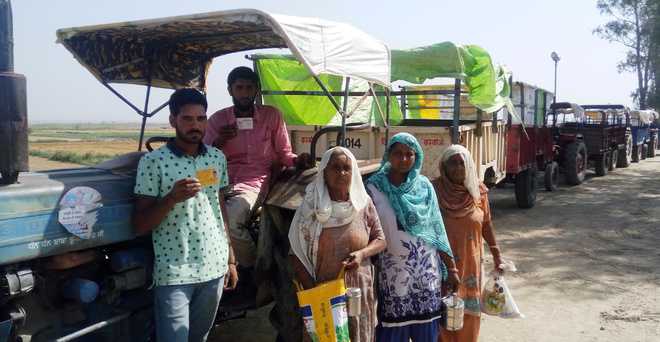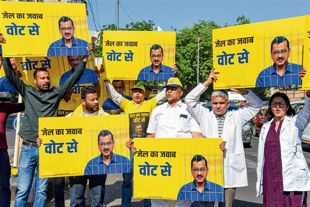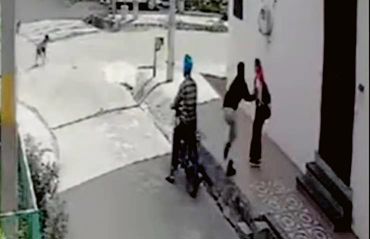
Farmers wait for their turn to pass through a high-security fencing gate near border outpost Dona Telu Mal in Ferozepur. Tribune photo
Anirudh Gupta
Ferozepur, April 26
It is 8.17am, and about 25 tractor-trailers and bullock carts are queued up near border pillar number 195 along the India-Pakistan border in Dona Telu Mal village. Farmers are waiting under the scorching sun for their turn to get past the high-security BSF fencing gate.
Before they go further, the farmers are not only frisked by gun-toting BSF sentinels, but also their agricultural equipment are thoroughly scanned by sniffer dogs. Women are also frisked by special BSF women volunteers. Even ID cards are checked.
After being sure, the BSF sleuths give “green signal” and let the farmers go past the fencing gate. On other side of gate, the farmers have to wait for hours, again. This time, for their turn to cross the Sutlej on the wooden “bera” to reach their fields. The entire process takes at least three to four hours. There are three private “beras”, for which local farmers have contributed; the government has provided only one. Even BSF troops use “beras” to transport their vehicles.
As soon as the clock strikes four, the BSF “kisan” guard signals them to stop the work. It is time to retreat to their homes irrespective of the fact that the work has been completed or not. These border farmers get only four to five hours to tend to their fields. Time for farming is insufficient, many farmers rue.
This is not their only concern. The fear of their tractor-trolleys, harvesting machines and other equipment getting drowned in the river occupies their mind. And rampant attacks by wild boars and frequent attempts by the land mafia to usurp their land add to their concerns.
Jaswant Lal, who jointly owns around 60 acres along with his five brothers, is upset over the plight of farmers in Dona Telu Mal, Gandhu Khichia, Mabboke, Bhambha Hazi, Rahela Hazi villages. He, however, has not lost hope. He demands the barbed wire fencing should be relocated further towards the zero line. “Even the burden on BSF troops will be reduced,” he adds.
Around 5,000 acres of fertile agricultural land is situated between the fencing and the zero line. “We have been standing here since 5am. Only one gate is opened and the rest are closed. It will be almost 11am when we will reach our fields,” says Anokh Singh, another farmer.
Karan Singh, secretary, Border Farmers’ Union, says that many a times, the tractor-trolleys or combines get drowned during transportation. “It’s a huge risk,” he says and adds that the state government should construct a bridge. “Even a pontoon bridge will serve the purpose. At least, the machinery could be transported to the fields safely.”
Another worry is the rising input costs. “The rent of a harvesting combine is between Rs 1,300 and Rs 1,500 here. In other parts of the state, the charges are less,” says Gurdeep Singh of Bhambha Hazi village.
“All our pleas fall on deaf ears,” says Jagdish Singh, waiting of his turn at fencing gate. “Last year, the Centre had announced Rs150-crore compensation for us. It is still awaited,” he adds.



























